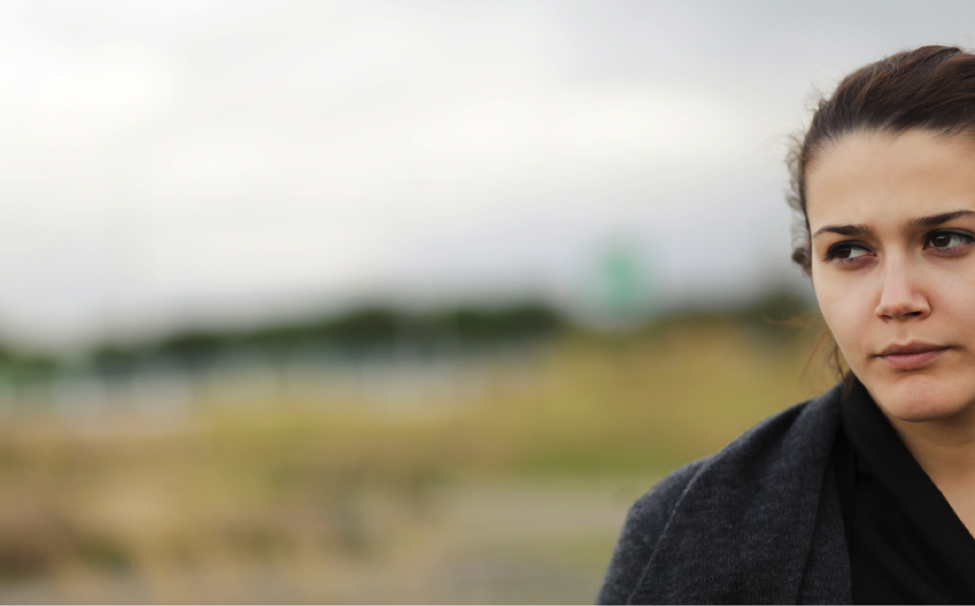In today’s world, it seems as though our entire lives exist within the realm of our smartphones and computers. We are continually checking our gadgets for updates on what our friends are doing, who commented on our picture, and if work has sent a new e-mail. This constant inundation of information is enough to drive anyone crazy; so it should come as no surprise that people today are more stressed and anxious than ever before. While medication is a viable option for some to ease their anxiety, it certainly isn’t for everyone. Many people who have tried anti-anxiety medications complain of feeling groggy and almost zombie-like. So what are the alternatives? We’ve put together some holistic approaches to help banish your anxiety without medication!
(Un) Social Butterfly
While social media is a guilty pleasure for almost everyone, the social anxiety that accompanies it can often wreak havoc on our nerves. From stumbling across an old flame’s vacation pictures, to having an acquaintance write a critical comment on an article you shared, social media can be an emotional minefield. The communication aspect of technology poses a whole other realm of anxiety. Waiting to hear back after a first date, office communication, and attempting to make group plans is just another layer of anxiety that technology provides. Navigating our many devices and social media accounts tends to be taxing to our well-being and general sense of calm. While some may suggest going on a ‘tech-detox’, this may not be the best approach for everyone. In taking a large chunk of time tech-free, you’re likely to have increased anxiety wondering about missed calls, unanswered e-mails, or unliked posts. Instead, try to abstain from checking your phone or computer for small increments of time. Start with 15 minutes, and slowly leave more and more time before checking your devices.
Get on Up
The benefits of regular exercise are numerous! A Princeton study has shown that physical activity creates excitable neurons in the hippocampus, an area of the brain that is involved in thinking, memories, and emotional responses. Furthermore, the study showed that exercise is able to reduce anxiety in both humans and animals. Researchers were able to determine this by conducting a study on runners and sedentary mice. The comparison revealed that runners’ brains were bursting with new, excitable neurons, while the mice’s brains did not. Of these new neurons in the runners’ brains, a number of them released the neurotransmitter GABA, which essentially prevents too many neurons in the brain from firing, thereby keeping you calm. Aside from the scientific aspects of working out, exercise can help you reach goals, gain confidence, increase your social interactions, and cope in a positive way! So the next time you have a big deadline or a fight with your partner, go out and take a lap around your neighbourhood!
Sit Still
As important as it is to be active and get your brain firing anxiety-reducing neurons, it’s also important to find your calm. Although, as prior noted, being active is an incredible outlet for those who suffer from anxiety, it’s important to be able to manage your stress and emotions. Sitting still during an anxious episode will force you to focus on your thoughts, mental state, and relaxation techniques. If you’ve never practiced any type of meditation before, there are a few things to know. Meditation can be as simple as sitting in a quiet, comfortable place. Simply focus on the act of breathing and controlling your breath. Deep breathing and meditation go hand in hand, and developing a rhythm will help your body to achieve a meditative state. Meditation does not give instant results, it takes dedication and perseverance, so dedicate yourself to mindfulness and you will get better at controlling and calming your mind!
Write It Out
One of the best ways to understand the millions of thoughts running through your head is to chronicle them. Having an ongoing record of how you felt on certain days and how things impacted you is a great way to help understand who we are. Make this a fun venture by picking out a beautiful notebook. Then, write everyday for about 20 minutes cataloging your day and your thoughts. Ask yourself, what am I telling myself? How anxious do I feel today? What triggered my anxiety? On a scale of 1-10, how bad is my anxiety? Even if it initially feels awkward and forced, developing the habit of writing will help you to understand the connection between your thoughts and your anxiety.
If you’re constantly looking ways to improve yourself and your wellbeing, we encourage you to learn more about the QRay difference


